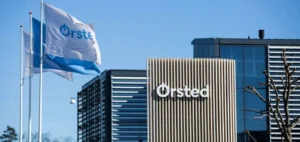In Kaskasi, off the German coast, the 342MW wind farm will provide electricity to more than 400,000 homes.
A large-scale project
The Kaskasi wind farm is located 35 kilometers north of the German island of Heligoland. The construction is completed with the installation of the last turbine. More than two-thirds of the 38 wind turbines in the wind farm are already supplying renewable electricity to the grid.
The Kaskasi wind farm will be operational by the end of the year. Its power will enable it to supply a city comparable in size to Frankfurt am Main. By 2030, RWE plans to invest €15 billion gross in Germany alone.
Sven Utermöhlen, CEO Wind Offshore of RWE Renewables, says:
“Together with our partner companies, our team has been relentlessly pursuing the installation of the turbines for our sixth wind farm off the German coast. Since July, a total of 38 wind turbines have been successfully installed off the island of Heligoland. This is exactly the kind of determination we need, as faster offshore expansion allows us to achieve our climate goals as well as greater energy sovereignty.”
RWE wants to increase its global offshore wind capacity from the current 3GW to 8GW. With its Canadian partner, it is developing four offshore wind projects in Germany with a total capacity of 1.5GW.
A technical innovation
This project marks the testing of a brand new technology. The rotor blades are recyclable and have a particularly long service life. Until now, rotor blades have been difficult to recycle because of their composition.
Composite materials are made of resin, which makes it impossible to separate them. The blades used on the Kaskasi park now have a different composition. RWE is working on a new resin to separate the constituent materials. The Siemens Gamesa Recycable Blade thus becomes the first reusable blade.
It will now be possible to give these blades a second life. It is possible to reuse them in the automotive industry or in products such as suitcases and screen cases. In addition, RWE plans to invest over €50 billion gross worldwide.






















